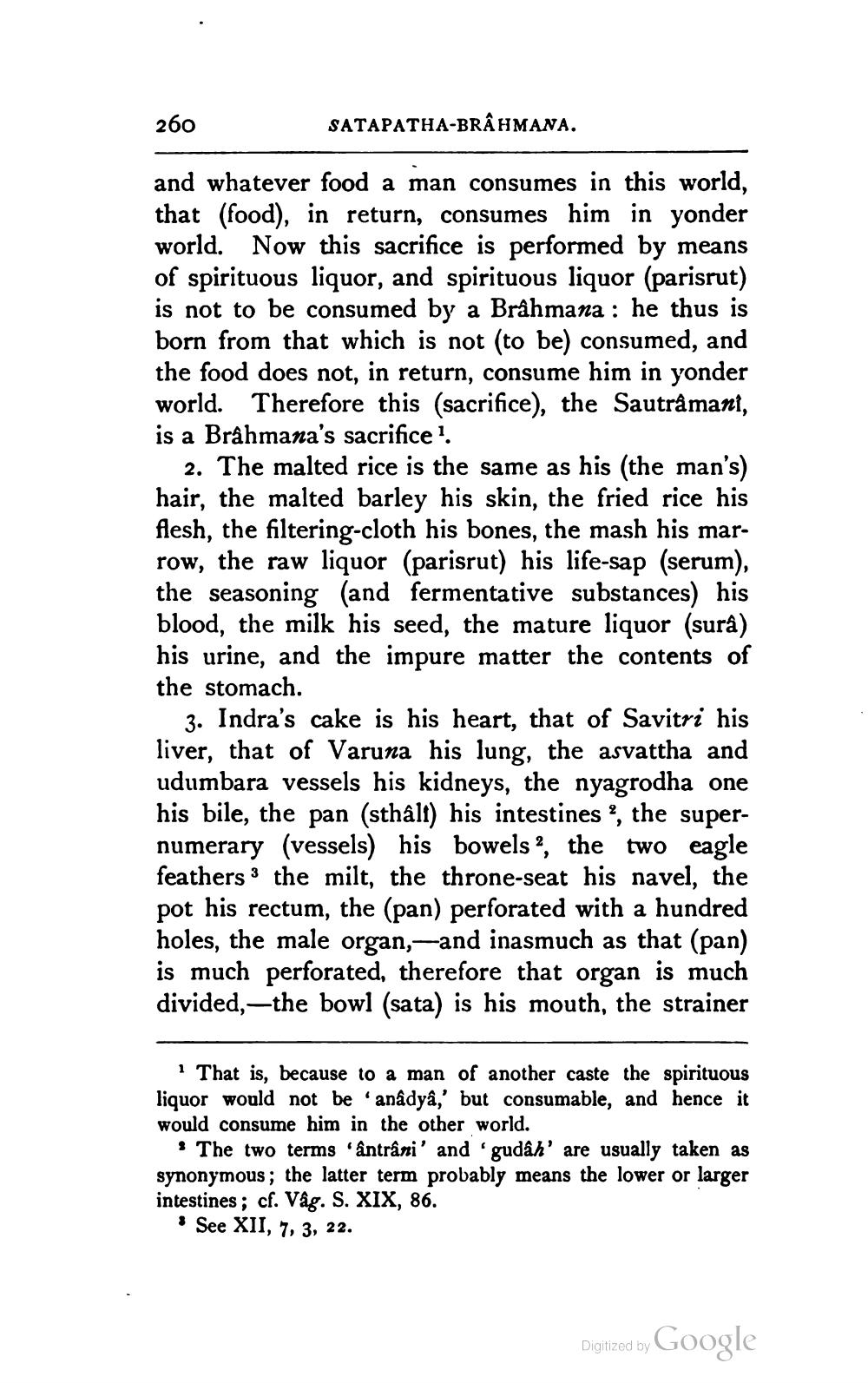________________
260
SATAPATHA-BRAHMANA.
and whatever food a man consumes in this world, that (food), in return, consumes him in yonder world. Now this sacrifice is performed by means of spirituous liquor, and spirituous liquor (parisrut) is not to be consumed by a Brahmana : he thus is born from that which is not (to be) consumed, and the food does not, in return, consume him in yonder world. Therefore this (sacrifice), the Sautrâmani, is a Brâhmana's sacrifice'.
2. The malted rice is the same as his (the man's) hair, the malted barley his skin, the fried rice his flesh, the filtering-cloth his bones, the mash his marrow, the raw liquor (parisrut) his life-sap (serum), the seasoning (and fermentative substances) his blood, the milk his seed, the mature liquor (sura) his urine, and the impure matter the contents of the stomach.
3. Indra's cake is his heart, that of Savitri his liver, that of Varuna his lung, the asvattha and udumbara vessels his kidneys, the nyagrodha one his bile, the pan (sthalt) his intestines, the supernumerary (vessels) his bowels”, the two eagle feathers 3 the milt, the throne-seat his navel, the pot his rectum, the (pan) perforated with a hundred holes, the male organ,--and inasmuch as that (pan) is much perforated, therefore that organ is much divided,—the bowl (sata) is his mouth, the strainer
1 That is, because to a man of another caste the spirituous liquor would not be 'anadya,' but consumable, and hence it would consume him in the other world.
. The two terms 'antrâni' and 'gudâh' are usually taken as synonymous; the latter term probably means the lower or larger intestines ; cf. Våg. S. XIX, 86.
See XII, 7, 3, 22.
Digitized by Google




